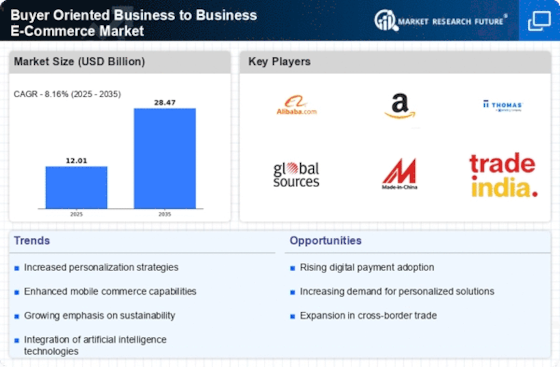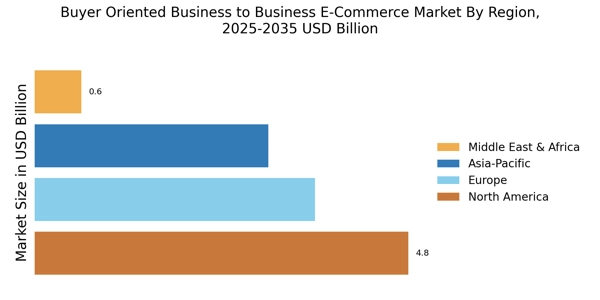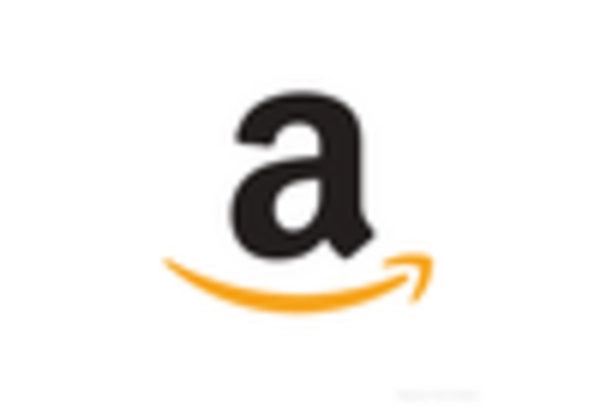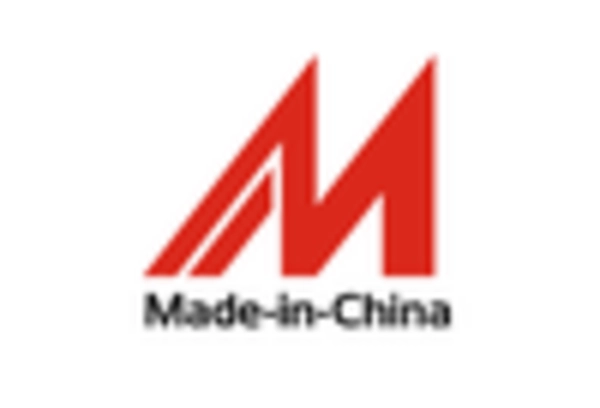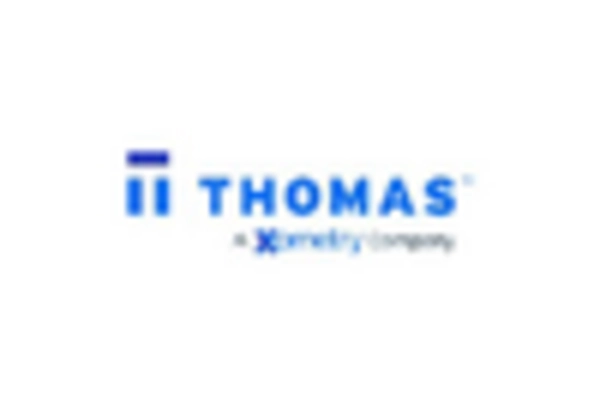Adoption of Advanced Technologies
The Buyer Oriented Business to Business E-Commerce Market is witnessing a notable adoption of advanced technologies, including artificial intelligence, machine learning, and blockchain. These technologies are transforming the way businesses operate and interact with their clients. For instance, AI-driven chatbots are enhancing customer service by providing instant support and personalized recommendations. Furthermore, blockchain technology is improving transaction security and traceability, which is becoming increasingly important in B2B transactions. Recent data suggests that companies implementing these technologies can achieve up to a 30% increase in operational efficiency. As businesses continue to explore innovative solutions, the integration of advanced technologies is likely to play a pivotal role in shaping the future of the Buyer Oriented Business to Business E-Commerce Market.
Rise of Data-Driven Decision Making
In the Buyer Oriented Business to Business E-Commerce Market, the rise of data-driven decision making is becoming increasingly prominent. Companies are leveraging big data analytics to gain insights into buyer behavior, preferences, and market trends. This analytical approach allows businesses to make informed decisions regarding product offerings, pricing strategies, and marketing campaigns. Recent findings indicate that organizations utilizing data analytics are 5 times more likely to make faster decisions than their competitors. Consequently, e-commerce platforms that harness data effectively can enhance their operational efficiency and responsiveness to market demands. This trend underscores the importance of integrating advanced analytics into the e-commerce framework, positioning businesses to thrive in a competitive landscape.
Increased Demand for Personalization
The Buyer Oriented Business to Business E-Commerce Market is witnessing a pronounced shift towards personalized experiences. Businesses are increasingly seeking tailored solutions that cater to their specific needs, which has led to a surge in demand for customizable products and services. According to recent data, approximately 70% of B2B buyers express a preference for personalized interactions, indicating a significant opportunity for e-commerce platforms to enhance their offerings. This trend is further fueled by advancements in data analytics and customer relationship management tools, enabling companies to gather insights and deliver targeted solutions. As a result, e-commerce platforms that prioritize personalization are likely to gain a competitive edge, fostering stronger relationships with clients and driving sales growth.
Expansion of Digital Payment Solutions
The Buyer Oriented Business to Business E-Commerce Market is experiencing a rapid expansion of digital payment solutions, which is reshaping transaction processes. The adoption of various payment methods, including mobile wallets and cryptocurrencies, is becoming increasingly prevalent among businesses. Recent statistics suggest that nearly 60% of B2B transactions are now conducted through digital channels, highlighting the necessity for e-commerce platforms to integrate diverse payment options. This shift not only enhances convenience for buyers but also streamlines the purchasing process, reducing friction and improving overall customer satisfaction. As businesses continue to embrace digital transformation, the demand for secure and efficient payment solutions is expected to grow, further propelling the Buyer Oriented Business to Business E-Commerce Market.
Growing Emphasis on Supply Chain Transparency
The Buyer Oriented Business to Business E-Commerce Market is increasingly characterized by a growing emphasis on supply chain transparency. Businesses are recognizing the importance of ethical sourcing and sustainability, prompting them to seek suppliers who can provide clear visibility into their supply chains. Recent surveys indicate that over 80% of B2B buyers consider transparency a critical factor in their purchasing decisions. This shift is driving e-commerce platforms to implement features that allow buyers to trace the origins of products and assess the sustainability practices of suppliers. As a result, companies that prioritize transparency are likely to enhance their brand reputation and foster trust among clients, ultimately contributing to long-term success in the Buyer Oriented Business to Business E-Commerce Market.


